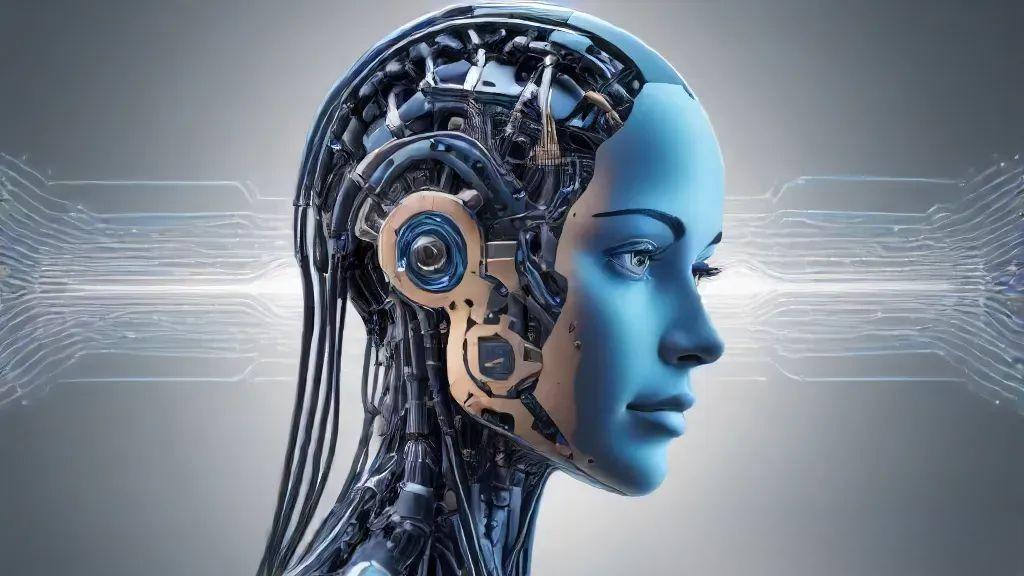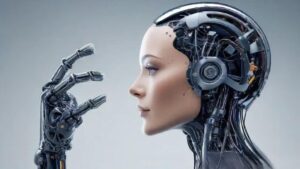Unleash the power of Artificial Intelligence

Artificial intelligence (AI) is a rapidly growing field that is changing the world in many ways. From self-driving cars to facial recognition software, AI is already having a major impact on our lives. And it’s only going to become more prevalent in the years to come.
In this article, we’ll take a look at AI and its potential impact on the future. We’ll discuss what AI is, how it’s used today, and what the future holds for this technology.
What is AI?
Artificial intelligence (AI) is the ability of a machine to simulate human intelligence. AI research has been highly successful in developing effective techniques for solving a wide range of problems, from game playing to medical diagnosis. However, AI is still in its early stages of development, and there are many challenges that need to be overcome before it can achieve human-level intelligence.
One of the biggest challenges facing AI is the problem of generalization. AI systems are typically trained on a large dataset of examples, and they learn to perform a specific task by identifying patterns in the data. However, when presented with a new situation that is not like anything they have seen before, AI systems can often struggle to generalize and make accurate predictions.
Another challenge facing AI is the problem of robustness. AI systems are often brittle, and they can easily be fooled by small changes in the input data. This can make them unreliable in real-world settings, where they are likely to be exposed to noisy and incomplete data.
Despite these challenges, AI is a rapidly growing field, and there is a great deal of excitement about the potential benefits that it could bring to society. AI could help us to solve some of the world’s most pressing problems, such as climate change and poverty. It could also help us to create new technologies that will improve our lives in ways that we can only imagine.
How is AI used today?
Artificial intelligence is used in a wide variety of applications today, including:
- Natural language processing (NLP)
- Machine learning (ML)
- Computer vision
- Speech recognition
- Robotics
AI is also being used to develop new technologies, such as self-driving cars and virtual assistants.
Benefits of AI
Artificial intelligence (AI) has the potential to provide a wide range of benefits to businesses, including:
- Improved productivity
- Reduced costs
- Enhanced customer experience
- New business opportunities
- Improved decision-making
AI can help businesses to automate tasks, identify and resolve problems, provide personalized customer service, and make better decisions. By leveraging AI, businesses can improve their efficiency, reduce their costs, and better serve their customers.
For example, AI-powered chatbots can help businesses to provide 24/7 customer service, while AI-powered marketing tools can help businesses to target their marketing campaigns more effectively. AI can also be used to improve the efficiency of manufacturing processes, identify fraud, and detect security threats.
The benefits of AI are significant, and businesses that are not investing in AI are likely to fall behind their competitors. By understanding the benefits of AI and how it can be used to improve their business, businesses can make informed decisions about whether or not to invest in AI.
Drawbacks of AI
While AI has many potential benefits, there are also some potential drawbacks to consider. These include:
- Job displacement: AI could potentially automate many jobs, leading to job loss for some workers.
- Bias: AI systems can be biased against certain groups of people, which could lead to unfair outcomes.
- Security risks: AI systems can be hacked, which could lead to data breaches or other security problems.
- Unintended consequences: AI systems can be used for unintended purposes, which could have negative consequences for society.
It is important to be aware of these potential drawbacks of AI and to take steps to mitigate them. By doing so, we can help to ensure that AI is used for good and that it benefits all of society.
The future of AI
The future of AI is full of possibilities. It is expected to have a major impact on all aspects of our lives, from the way we work and learn to the way we interact with the world around us.
Here are some of the ways that AI is expected to change the world in the years to come:
- AI will be used to automate more and more tasks, freeing up humans to focus on more creative and strategic work.
- AI will be used to develop new medical treatments and cures for diseases.
- AI will be used to create new forms of art and entertainment.
- AI will be used to improve our transportation systems and make them more efficient.
- AI will be used to create new ways to communicate with each other and to learn about the world around us.
The potential benefits of AI are enormous, but there are also some potential risks to consider. For example, AI could be used to create autonomous weapons systems that could kill without human intervention. AI could also be used to create surveillance systems that could track our every move.
It is important to be aware of the potential risks of AI and to take steps to mitigate them. We need to ensure that AI is used for good and not for evil. We need to make sure that AI is developed in a responsible way and that it is used to benefit humanity, not to harm it.
The future of AI is uncertain, but it is clear that AI has the potential to change the world in a major way. We need to be prepared for this change and to ensure that AI is used for the benefit of all.
How to get started with AI
There are many ways to get started with AI. Here are a few tips:
- Learn the basics of AI. There are many resources available online and in libraries that can help you learn the basics of AI, such as machine learning, natural language processing, and computer vision.
- Get involved in the AI community. There are many online forums and communities where you can connect with other people who are interested in AI. This is a great way to learn about new developments in the field and to get help with your own projects.
- Start small. Don’t try to tackle a big AI project right away. Instead, start with a small project that you can complete in a few weeks or months. This will help you get a feel for the process and will make it more likely that you will finish your project.
- Use existing tools and frameworks. There are many AI tools and frameworks available that can help you get started with AI. These tools can save you time and effort, and they can help you build more complex AI models.
- Be patient. It takes time to learn AI and to build successful AI models. Don’t get discouraged if you don’t see results immediately. Just keep learning and practicing, and eventually you will achieve your goals.
Getting started with AI can be a fun and rewarding experience. By following these tips, you can learn the basics of AI and start building your own AI models.
Resources for learning more about AI
There are a number of resources available for learning more about AI. Here are a few of the best:
- Coursera’s Artificial Intelligence Specialization: This specialization offers a comprehensive introduction to AI, from the basics of machine learning to deep learning and natural language processing.
- BerkeleyX’s Artificial Intelligence course: This course from the University of California, Berkeley covers the foundations of AI, including search, planning, and learning.
- Udacity’s Artificial Intelligence for Everyone course: This course from Udacity provides a beginner-friendly introduction to AI, with no prior experience required.
- Khan Academy’s Artificial Intelligence curriculum: This free online curriculum from Khan Academy covers the basics of AI, from machine learning to natural language processing.
In addition to these online courses, there are also a number of books and articles available on AI. Here are a few of the best:
- Artificial Intelligence: The Next Revolution by Gary Marcus
- Deep Learning: A Practitioner’s Guide by Ian Goodfellow, Yoshua Bengio, and Aaron Courville
- Thinking, Fast and Slow by Daniel Kahneman
- The Mastery of Machine Learning by Pedro Domingos
With so many resources available, there’s no excuse not to learn more about AI. The future of AI is bright, and by understanding it, you can prepare yourself for the changes it will bring.
Conclusion
In conclusion, artificial intelligence is a powerful technology that is rapidly changing the world. It is already being used in a wide variety of industries, and its potential applications are endless. However, it is important to be aware of the potential drawbacks of AI, such as bias and job displacement. By understanding the risks and benefits of AI, we can make informed decisions about how to use this technology to create a better future.
AI is still in its early stages of development, but it has the potential to revolutionize the way we live and work. By embracing this technology, we can create a more efficient, productive, and equitable world.

